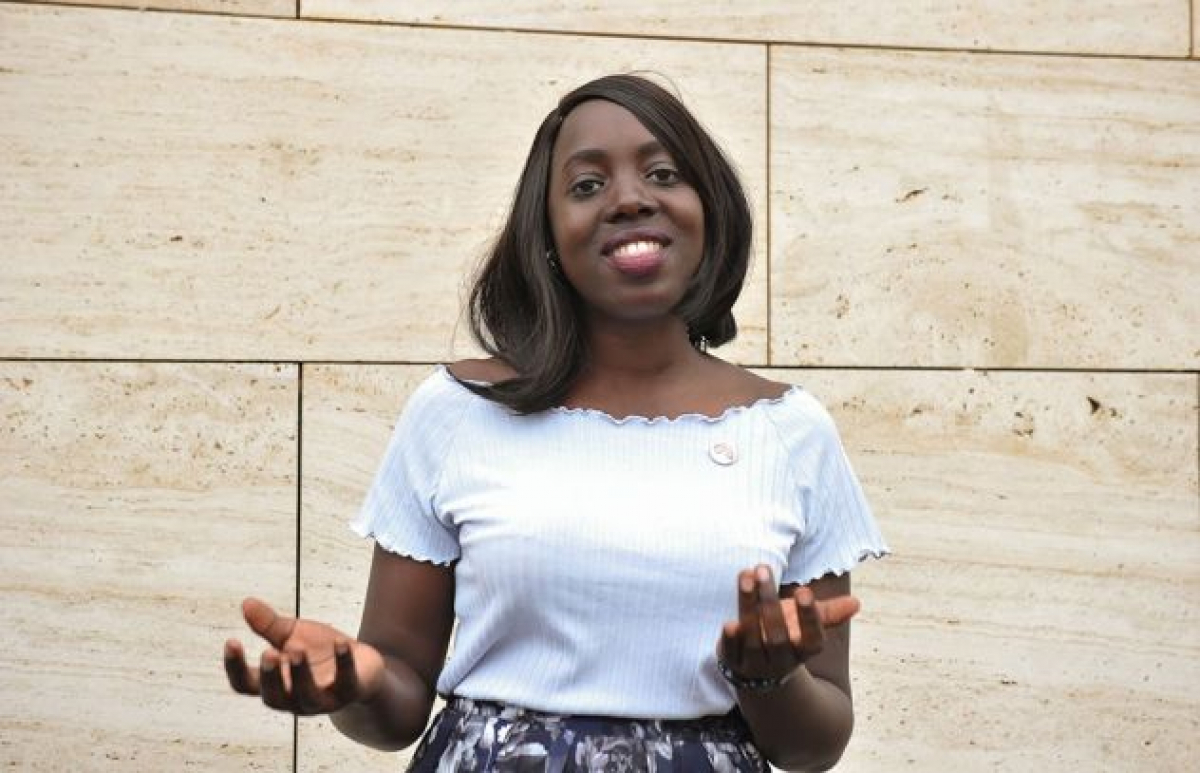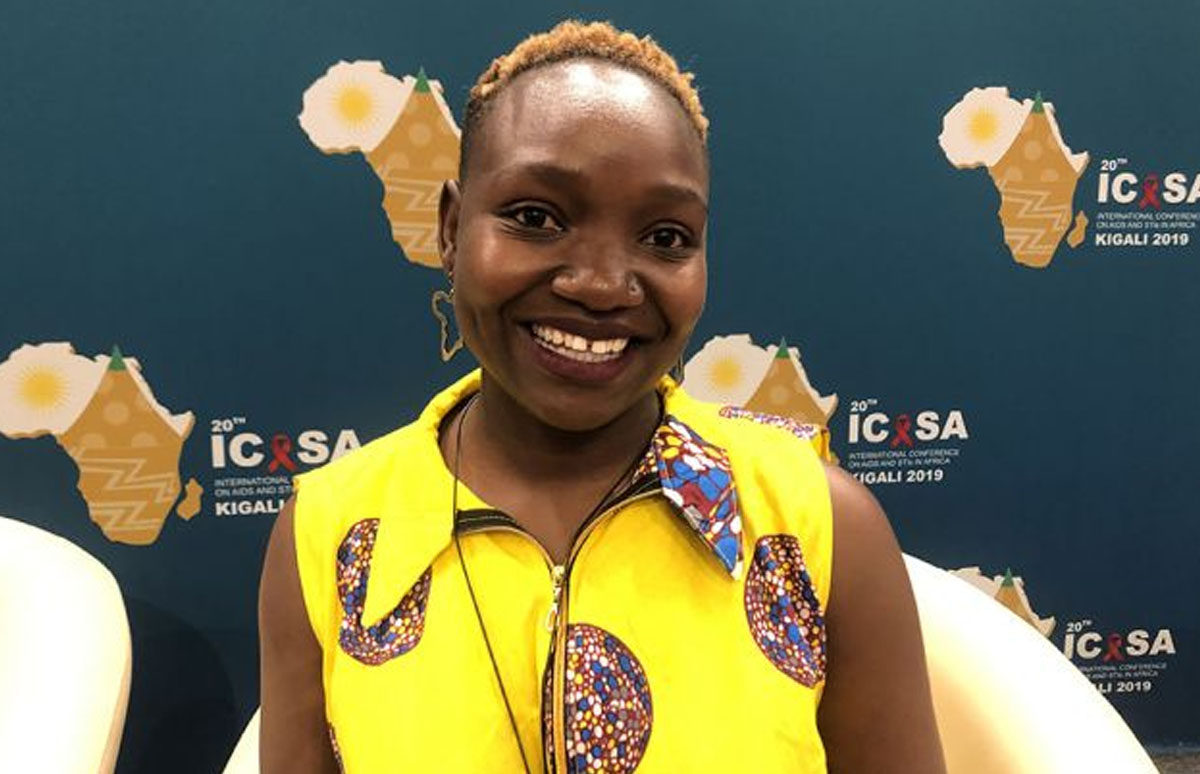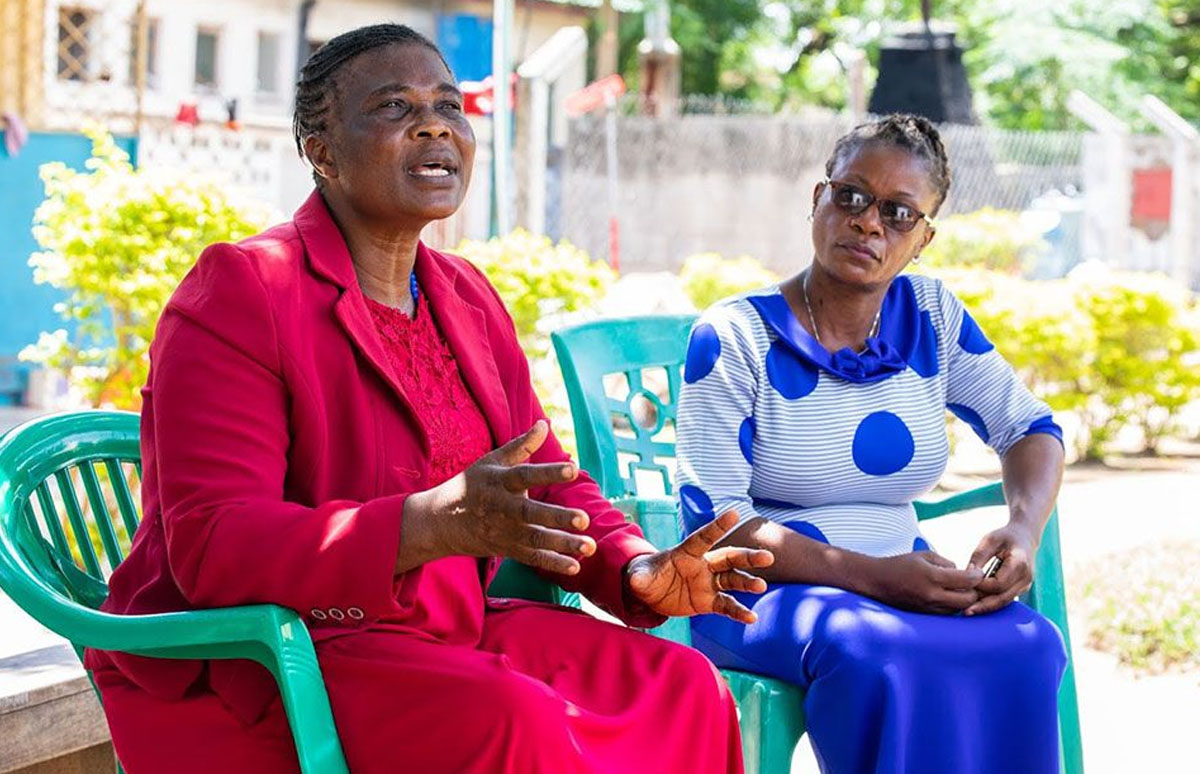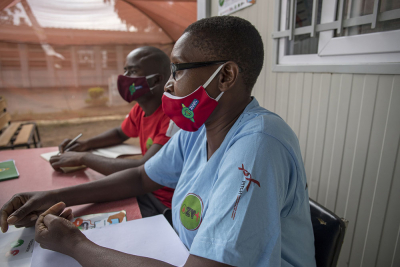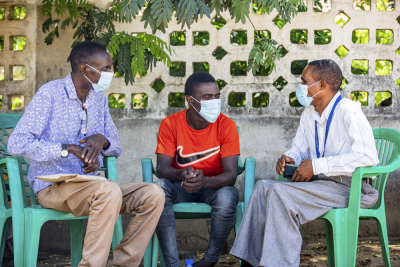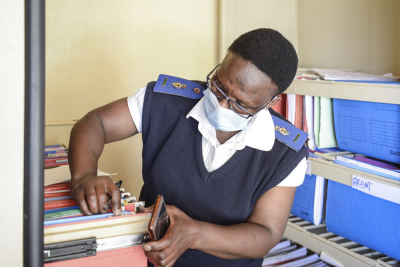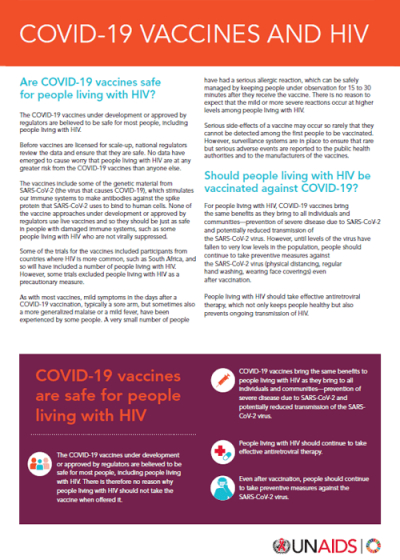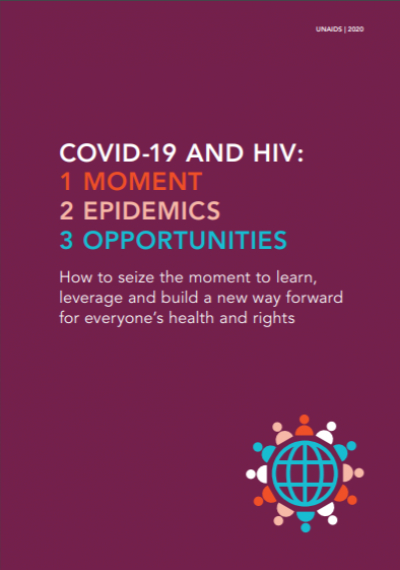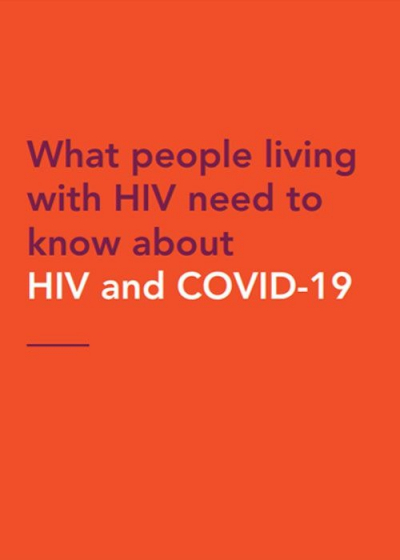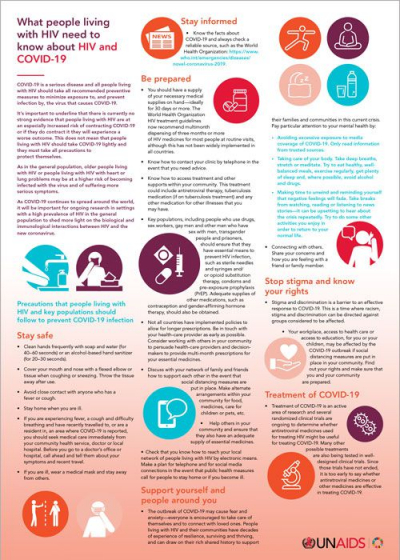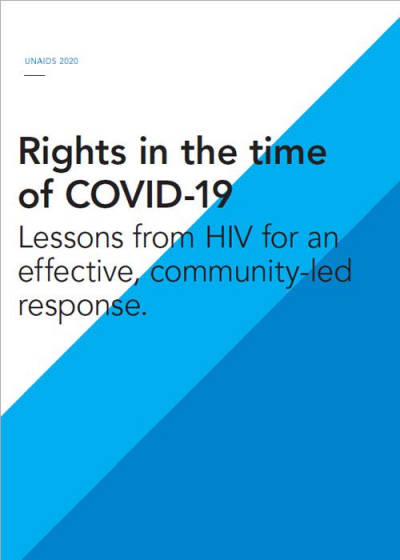What people living with HIV need to know about HIV and COVID-19
These are difficult times for all of us. UNAIDS is urging people to act with kindness, not stigma and discrimination—people affected by COVID-19 are part of the solution and must be supported.
Governments must respect the human rights and dignity of people affected by COVID-19. The experiences learned from the HIV epidemic can be applied to the fight against COVID-19. As in the AIDS response, governments should work with communities to find local solutions. Key populations must not bear the brunt of increased stigma and discrimination as a result of the COVID-19 pandemic.
Everyone, including people living with HIV, should take the recommended precautions to reduce exposure to COVID-19:
- Make wearing a mask a normal part of being around other people. The appropriate use, storage and cleaning or disposal are essential to make masks as effective as possible.
- Regular and thorough hand washing with soap and water or alcohol-based hand rub.
- Maintain at least 1 metre distance between yourself and anyone who is coughing or sneezing.
- Avoid touching your eyes, nose and mouth.
- Make sure that you, and the people around you, follow good respiratory hygiene—cover your mouth and nose with your bent elbow or tissue when you cough or sneeze and dispose of the used tissue immediately.
- Stay home if you feel unwell. If you have a fever, cough and difficulty breathing, seek medical attention and call in advance. Follow the directions of your local health authority.
UNAIDS recognizes, however, that in many countries, owing to weaker health-care systems, informal settlements, overcrowded cities and public transportation and a lack of clean water and sanitation, the current approaches to self-protection, social distancing and containment may not be viable.
COVID-19 and people living with HIV
COVID-19 is a serious disease and all people living with HIV should take all recommended preventive measures to minimize exposure to, and prevent infection by, the virus that causes COVID-19. As in the general population, older people living with HIV or people living with HIV with heart or lung problems may be at a higher risk of becoming infected with the virus and of suffering more serious symptoms. All people living with HIV should reach out to their health-care providers to ensure that they have adequate stocks of essential medicines.
What UNAIDS is doing
UNAIDS is working with governments and community partners to:
- Carry out surveys to assess information needs, medication available and ability to access service support networks.
- Find out if multimonth dispensing of antiretroviral therapy is being fully implemented, and, if not, identify how to implement it.
- Assess the possibility of HIV service interruption and develop plans for access to those services.
What UNAIDS recommends
HIV services must continue to be made available for people living with and at risk of HIV. This includes ensuring the availability of condoms, opioid substitution therapy, sterile needles and syringes, harm reduction, pre-exposure prophylaxis and HIV testing.
To prevent people from running out of medicines and to reduce the need to access the health system, countries should have full implementation of multimonth dispensing of three months or more of HIV treatment.
There must be access to COVID-19 services for vulnerable people, including a targeted approach to reach those most left behind and removing financial barriers, such as user fees.
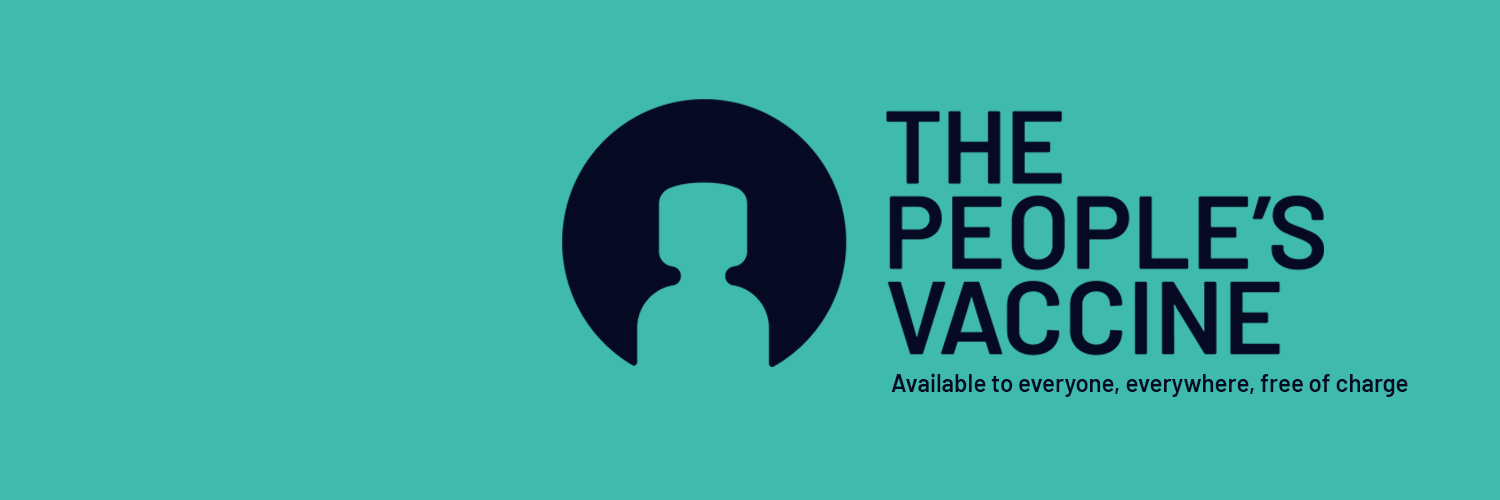
We must have a #PeoplesVaccine, not a profit vaccine
Unless urgent action is taken by governments and the pharmaceutical industry to make sure enough doses are produced, COVID-19 will continue lay existing inequalities bare. Pharmaceutical corporations and research institutions working on COVID-19 vaccines must share the science, technological know-how, and intellectual property related to the vaccines to maximise production by other quality producers. This will allow that enough safe and effective doses to be supplies to all who need the vaccines at the same time. And there is already a global mechanism that facilitates this sharing: the World Health Organization COVID-19 Technology Access Pool (C-TAP).
Governments must do everything in their power to ensure COVID-19 vaccines are made a global public good—free of charge to the public, fairly distributed and based on need not ability to pay. A first step would be to support South Africa and India’s proposal to the World Trade Organisation Council this week to waive intellectual property rights for COVID-19 vaccines, tests and treatments until everyone is protected.
Now is time for pharmaceutical companies and governments to step up and ensure that a COVID-19 vaccine is available to everyone, everywhere, free at the point of use. Only then will the world begin to turn the tide on the COVID-19 crisis and ensure that everyone can stay safe and prosper—UNAIDS Executive Director, Winnie Byanyima
UNAIDS
The Joint United Nations Programme on HIV/AIDS (UNAIDS) leads and inspires the world to achieve its shared vision of zero new HIV infections, zero discrimination and zero AIDS-related deaths. UNAIDS unites the efforts of 11 UN organizations—UNHCR, UNICEF, WFP, UNDP, UNFPA, UNODC, UN Women, ILO, UNESCO, WHO and the World Bank—and works closely with global and national partners towards ending the AIDS epidemic by 2030 as part of the Sustainable Development Goals. Learn more at unaids.org and connect with us on Facebook, Twitter, Instagram and YouTube.

